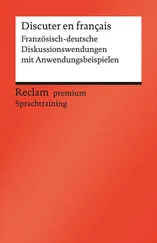When he went down the platform while the train pulled away close beside him, he had seen her through the window, sitting very still, hugging the box to her chest, her eyes closed.
“The terminal, Senhor, this is the last stop.” Oscar alighted from the tram and ambled across Rossio Square. Even in the late afternoon the heat was heavy. He was lost, stood still and looked about him, felt in his pockets for a city map. Any direction would do, he reckoned.
The sound of a doorbell rang through the house. She didn’t recognise it at first. Her bell never rang. Then Kate realised she had to answer it. As she approached the front door, she heard a slight shuffle of feet and someone whistling softly.
“Hello Miss,” Matteous said. He sounded so timid, she felt herself melt. It was almost unbearable, that shyness of his every time he greeted her. He had actually come to her house! She had not thought he would act upon her invitation.
“Matteous! Do come in, how good to see you!” She did not wish to overwhelm him with enthusiasm, but was unable to hide her delight at his coming. She had explained how to get to Barkston Gardens, and had written the address and the telephone number on a slip of paper, just in case. The note was in his hand. He put it down in front of her and said: “I can’t read, Miss, or write,” as though confessing to a crime.
Kate moved it out of sight as quickly as she could, mortified by her thoughtlessness. It had never come up at the hospital, but of course he couldn’t read or write, what did she expect? She found herself infected by his shyness, and for several minutes they strove to find a new balance.
“What I really want, Miss, is to be able to write a letter by myself. So I could send it to a newspaper, or a radio station. I have heard that people sometimes find their families that way.”
A black boy from an African wilderness, illiterate in a world steeped in the written word. It was enough to render anyone taciturn, timid, powerless.
It dawned on her that Matteous was asking her to teach him to write. A letter that would say what he had thought and lived through during all those years. A letter explaining his life, a letter home, to his mother, Kate imagined. Writing: arranging the words so that they would say what he wanted to tell his mother, although he could hardly expect her to be able to read his letter. But somebody could read it to her. And Kate pictured his mother listening to what he had written, a letter resembling a musical score, a Congolese dance, a prayer for rain, or a song for the dead. “She won’t be alive anymore, Miss, will she?” he had said the day before, making it sound halfway between a statement and a question.
Would he like something to eat or drink, she asked, for she was persuaded that he was always hungry or thirsty. She could not resist making the offer, and he said yes so as not to have to say no. “No” was a word he said with difficulty, not wishing to sound disrespectful. He was wearing an old jumper of Oscar’s which she had given him, and black army trousers from the hospital. Matteous had approached her with great caution, his tread as soft as if he were stalking a wild animal. So he was asking her for help: teach me to write, then I can go back home.
Kate went to the kitchen, made tea, put some homemade biscuits on a plate and brought it all through on a tray to the balcony.
“Come, let’s sit outside.”
Two chairs and a small table were all the balcony could hold. Matteous stood waiting for Kate to take a seat, and did not sit down until she urged him to. After a while she said that, yes, she would be happy to teach him for as long as he liked, for as long as he stayed in England. Was that alright with him? And she promised him that the day would come when he would write that letter.
She had not known it was possible to weep so noiselessly. It was not weeping in the usual sense, for his face was unchanged, there even seemed to be a hint of a smile. The tears spilled from his eyes as though following a logic of their own. He did not try to check them, they ran down his cheeks in rivulets, his head held high, his hands on the armrests of his chair as he faced her. She returned his gaze, made no move to console him or take his hand. She made no gesture whatsoever that might discomfit him. She saw the young soldier, the boy in the forest, the man far from home, the wounded patient in bed. She saw the son of a mother who had disappeared.
Events he had only touched upon in the past now came out in the open, in fits and starts.
“Suddenly they were there, Miss, they stormed into the houses and killed everybody they could find. My father shouted for me to run away into the forest. ‘Don’t look back, Matteous, don’t look back,’ he said. I ran, but I also looked back, and then I saw him standing there, surrounded by men raising their axes against him.”
He had joined a band of children roaming the forest, in flight from their village and what had taken place there. He might have been seven years old. He had forgotten a lot, the worst had been washed away. He did not know how he had ended up in Élisabethville. Who had helped him, who gave him food, how he came out of that forest alive – it was all a great gap in his memory. He took huge leaps across time: at one moment he was seven, at the next seventeen, now he was playing in his village, now in the dancing halls of the city. Élisabethville. The way he said the name gave it something equivocal: there was wistfulness, and also a hint of a shudder, at least to a sensitive ear. To Kate’s ear. She heard everything. He had never spoken in this way before. Between nostalgia and horror, in bits and pieces, a story that had neither end nor beginning. He floundered, broke off, began again. His childhood, his years in the copper mines of Elisabethville, the daylight that he only saw on Sundays. He had done what everybody did: kept his head down. They were years of hardening the heart, and of denial. Years of slow preparation for – well, for what? Matteous groped for the words. And what he had been unable to say yesterday now poured out of him all of its own. That saving the officer’s life had not been a question of courage, but more one of despair. He thought he would run into a knife, or a gun, or a bayonet, get killed in action. He had nobody left anyway, they were all dead and gone. And when the bullets hit him he had almost been glad. His time had come, all would be forgotten. Hoisting the officer over his shoulder had not been hard, he had carried the man as a father would his child. Run, Matteous, don’t look back, go and hide in the impenetrable forest, in the darkness where nothing is.
But he had pulled through it all, willy-nilly. The Belgian officer, the strange white man with his gloves and his watch and his good shoes, had thanked him and vowed that his rescuer in turn should survive. Matteous had laid him carefully on the ground before collapsing at his side, overcome with pain. That was how they had been borne away, side by side on narrow stretchers, beyond the range of the enemy, beyond the range of death at any rate. He had not set eyes on the white man again.
He had been shipped to London for reasons he did not understand. The Belgian government-in-exile would take care of him, he was told. But that government was not his, it had nothing to do with him. He had drifted from Africa to Europe on tides of randomness, just as he had been sucked into the advance northwards, with an army of strangers set to fight another army of strangers.
Matteous lapsed at last into silence, his eyes fixed on Kate. She had not understood everything, but she had heard his story, told in the language unique to him, complete with gestures and stammerings and bits of words.
Читать дальше












